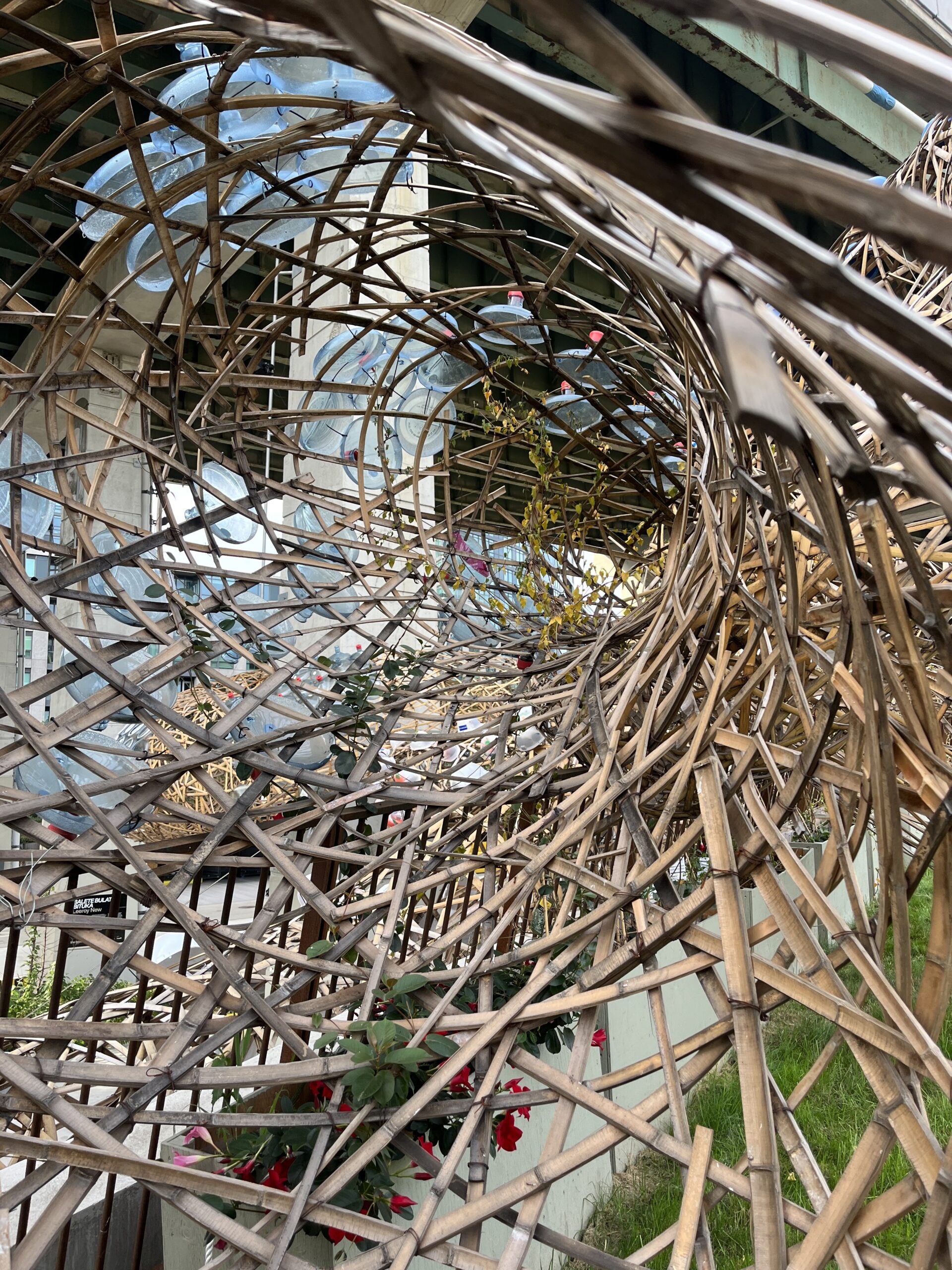The Bentway Sends Over 3 Tonnes of Bamboo for Reuse to Akachi Farms
Background
The Bentway is a non-profit organization that has been leading a creative movement under Toronto’s Gardiner Expressway since 2018. Free art, culture, and recreational opportunities are offered throughout the year, including their well-known skate trail, engaging the community and producing art commissions geared toward having a conversation about the city.
The signature installation in their Summer 2023 Beyond Concrete art exhibition, Balete Bulate Bituka, was created by artist Leeroy New exploring the tangled relationship between nature and urban waste. With its parasitic tentacles wrapping around the architecture of the Gardiner, Leeroy’s bamboo structure mimicked the vampiric growth patterns of the Balete tree, considered to be mystical and otherworldly in Southeast Asian culture.
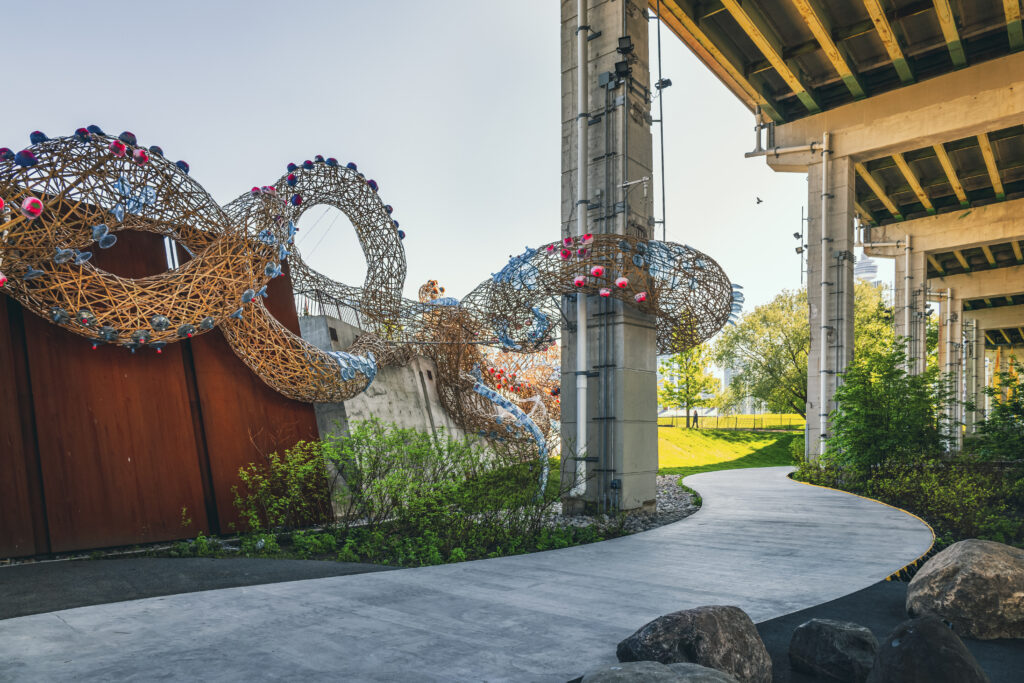
Scope of the Project
Instead of creating more waste, The Bentway and its artistic partners were intentional about applying sustainable approaches when creating the art piece, including using organic and reusable materials that could be returned, repurposed, or recycled after the exhibition closed.
More than three tonnes of bamboo were used for the installation. Luckily, the material proved extremely durable and maintained its structural integrity following the disassembly of the installation to be reused for a new life. All the plastic used to accent the piece, which was all previously used and provided by local organizations, was recycled following the project.
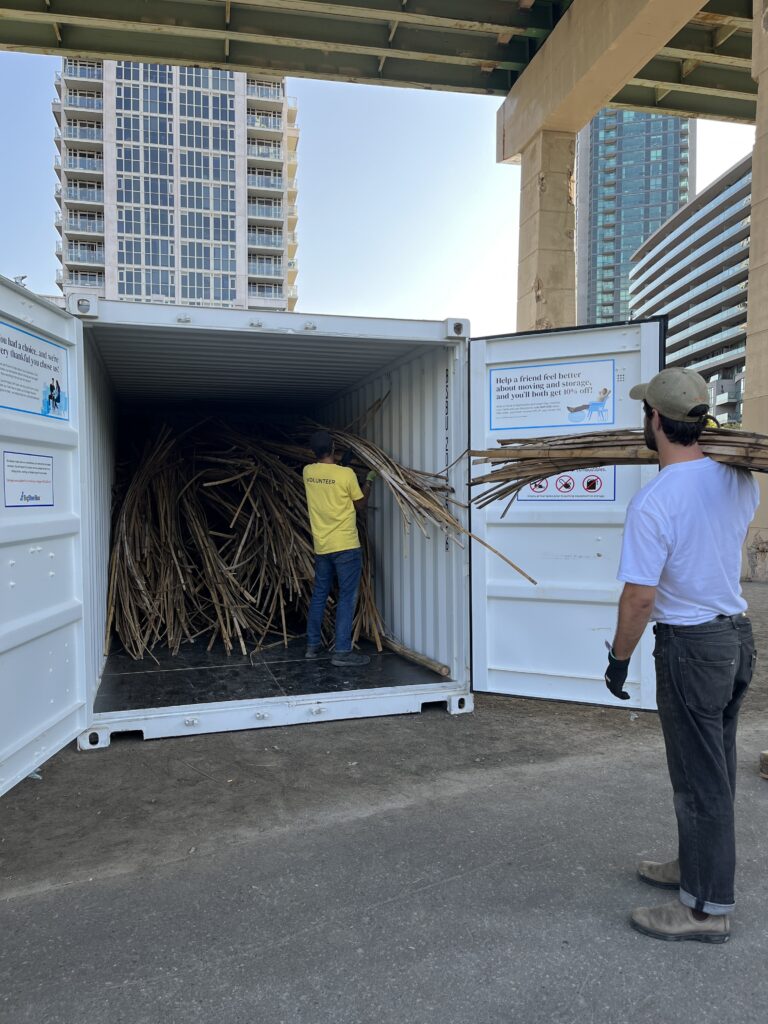
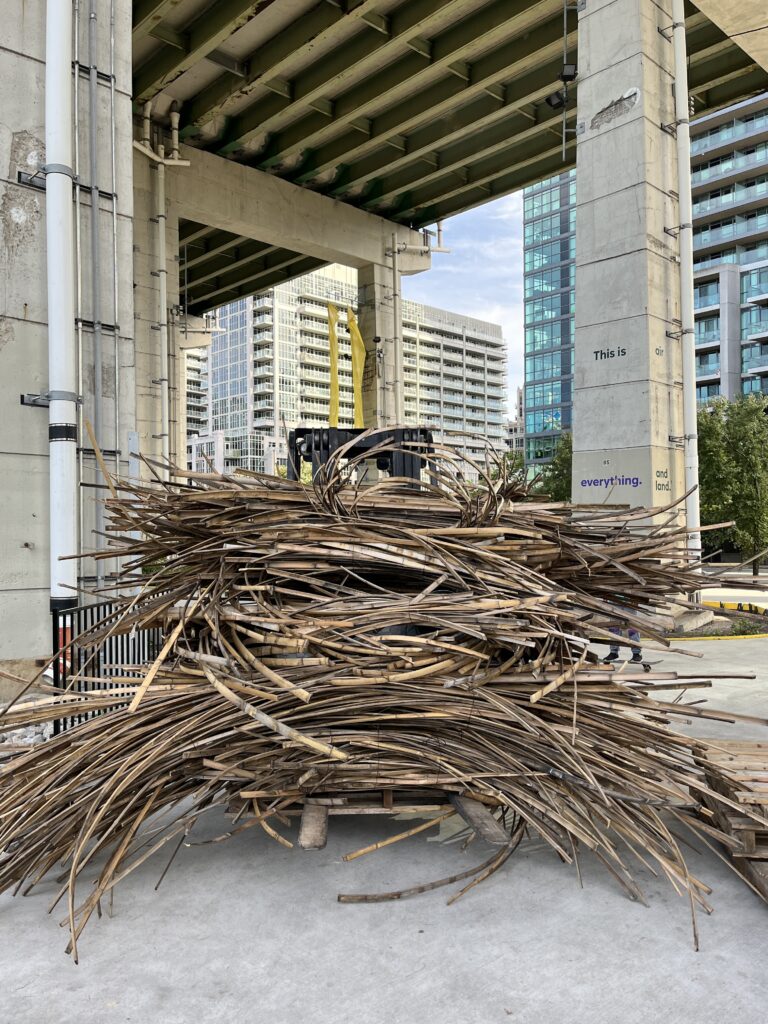
Solution Finding
Prior to creating the installation, The Bentway brought in Partners in Project Green’s (PPG) Material Exchange program to find a new home for the bamboo following the exhibition’s closure in the Fall. PPG connected The Bentway to Akachi Farms, a 4.8-hectare farm located at Kortright Centre for Conservation in Vaughan, on Toronto and Region Conservation (TRCA) owned land.
Akachi Farms owner, Buchi Onakufe, is a farmer passionate about working with nature to benefit all life (plants, animals, humans) by growing crops using organics solutions, utilizing solar energy, and rainwater harvesting.
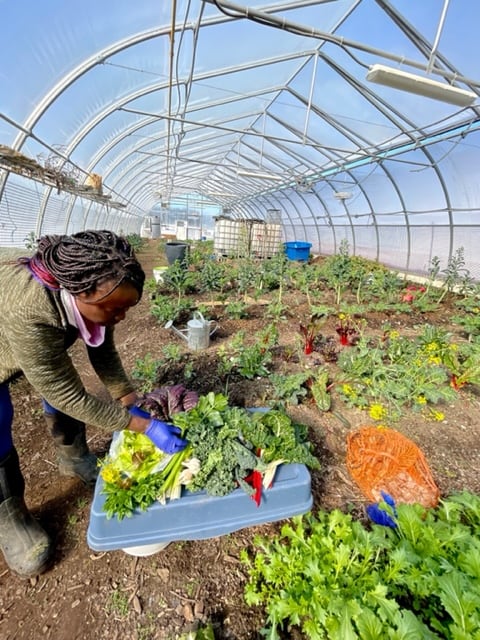
The yields are sold directly to community members via a Community Supported Agriculture (CSA) program, at local markets, and donated to various charities and shelters.
The bamboo from this project will be used by Buchi for fencing, as stocks for climbing crops (e.g., beans, tomatoes), and enhancing the meditation garden.
Although the bamboo will eventually reach its end of life, it has been significantly extended as Akachi Farms is able to use the bamboo in its original form and use its ashes in the greenhouse once it can no longer serve a function.
Key Metrics
In total, this exchange diverted 3.4 tonnes of bamboo to be reused before being composted.
Lessons Learned
The Bentway team is committed to sustainable approaches to commissioning and presenting temporary public art works. This means that The Bentway uses sustainable materials and seeks to find a meaningful afterlife for materials following disassembly of a project. This may require allocating extra time to test unfamiliar materials, finding ways to ensure reusability of the material, and building local partnerships.
The Bentway also strives to rent materials where possible, thereby reducing the amount of material left over at the end of a project’s life on their site. For materials that will go on to find new homes, The Bentway notes the importance of having a plan for storage while finding suitable reuse options.
Akachi Farms noted that The Bentway’s offer to transport the shipment of bamboo directly to the farm made a significant impact on their ability to accept the material. This is a finding reflected in many exchanges as material often goes to small community organizations with limited capacity to arrange a pickup.
**Photos are taken by The Bentway’s Artist Assistant, Layne Hinton.
Partners in Project Green’s Material Exchange program facilitates the exchange of material generated within our stakeholder community (businesses and non-profit groups) to divert waste from landfill, move towards a circular economy, and strengthen community ties. To learn more about the Material Exchange program, please contact Darlene.Coyle@trca.ca

